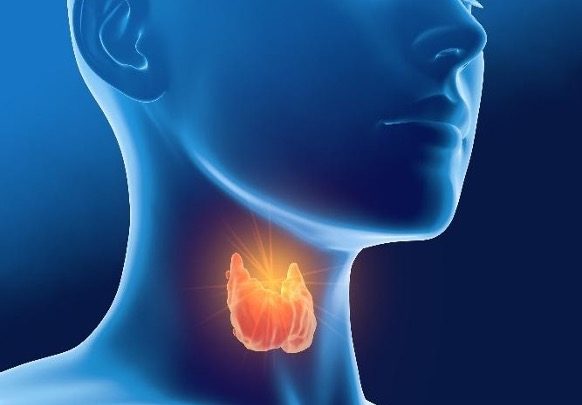Have you been told that your thyroid levels are all normal based on your TSH and T4 level? Or, do you seem to feel all the symptoms that correlate to low thyroid function, even when your bloods are considered ‘normal?’. If so, read on as your blood results are not everything….
What is the Thyroid?
- A gland, found in your neck
- It releases T4 and T3 – hormones that are released into our blood and have a huge effect on all of your cells and organ function.
- T4 is converted to the active form T3.
- T3 is the important one – this is the one we need to be high, to feel well.
- There are two antibodies that indicate an ‘attack’ on your thyroid gland and decrease its function: Thyroid Peroxidase Antibody and Thyroglobulin Antibody.
Optimal Thyroid Ranges:
-TSH <2.5 IU/ml
-FT4 0.82−1.77 ng/dL
-FT3 2.0−4.4 pg/mL
-TPOAb <35 IU/ml
These are the optimal levels, BUT, this is where I want you to forget about the numbers on your thyroid panel and think about your symptoms and most importantly YOUR BASAL BODY TEMPERATURE and your HEART RATE.
Quite simply, if you have a low body temperature (an average <36.3 degrees Celsius) or a resting heart rate consistently less than 65bpm, then your thyroid function is likely not optimal, and we need to work on improving your thyroid and increasing these two parameters.
Symptoms of Hypothyroidism
- Low body temperature and low heart rate at rest
- Infertility
- Chronic fatigue
- Joint pain
- High cholesterol
- Weight loss that plateaus
- Sensitivity to cold
- Increased susceptibility to be immunocompromised, obese and have autoimmune disorders.
Minerals required for optimal thyroid function:
- Zinc
- Selenium
- Iron
- Copper
- Manganese
- Magnesium
- Iodine
These minerals are obtainable through your diet and I would always advocate changing the diet to address any imbalances or low levels of these minerals before supplementing. To check if you are low or have an imbalance that may be causing your low body temperature or slow heart rate, order a hair mineral test! Looking at your ratio of Calcium to Potassium gives us a good insight into your thyroid health. Similarly, teaming this information up with the reading of your Magnesium, Selenium, Iron, Copper and Zinc will allow us to establish root causes behind potential thyroid dysfunction and at what level the dysfunction lies.
For example, for some, the dysfunction lies at the level of the thyroid gland. The hormones T3 and T4 are strings of Iodine and to get that Iodine onto the string, we need Magnesium and Sodium!
Or, the issue may lie at the level of your cells, at distal organ sites. Take for example your intestines, these need thyroid hormones to function. The body actively needs to move thyroid hormones in the blood, into the cells of your intestine. This process requires potassium! Therefore, if we have low potassium, the thyroid hormone doesn’t enter our intestines and we are prone to constipation. The hair mineral test provides us with a 2-3 month insight of what your potassium and overall mineral status is, which makes it an incredibly useful tool when looking how to restore optimum health.
Why your blood tests may be letting you down:
The standard test at the GP to assess your Thyroid health is TSH and T4. However, several studies now show that these two results are not adequate in showing if we are truly hypothyroid. We need a full overview of TSH, Total and Free T4 and T3, Reverse T3, Thyroid Peroxidase Antibodies, Thyroglobulin antibodies, and at times, if there is an autoimmune picture noted from those two antibody tests, TSH antibody levels! This will give us a true understanding of a potential thyroid problem and where it is, helping us understand potential root cause and address it.
Our Thyroid health plays a vital role in health and longevity. If you do not appear to have any of the symptoms associated with hypothyroidism listed above, I still encourage you to get a full panel tested once a year. Marginally underperforming thyroids have shown to increase our chances of developing cardiovascular and neurodegenerative disorders, so it is absolutely worth including in your yearly check-up!
At Mi hormone health, we typically do blood levels and hair mineral testing to assess your thyroid health. Once we have the results, and if there are aspects to address, we often see positive changes in a patient’s symptoms and levels in around 4 months. At times, this can take more or less time, depending on root cause but, the journey is totally worth it!
References:
1. Laurberg P, Knudsen N, Andersen S, Carlé A, Pedersen IB, Karmisholt J. Thyroid function and obesity. Eur Thyroid J. 2012 Oct;1(3):159-67. doi: 10.1159/000342994. Epub 2012 Sep 22. PMID: 24783015; PMCID: PMC3821486.
2. Dinicolantonio Dr J, Land, S The Mineral Fix ‘How to Optomise your mineral intake for energy, longevity, immunity, sleep and more’ Amazon, 2021. P.35.
3. Jara EL, Muñoz-Durango N, Llanos C, Fardella C, González PA, Bueno SM, Kalergis AM, Riedel CA. Modulating the function of the immune system by thyroid hormones and thyrotropin. Immunol Lett. 2017 Apr;184:76-83. doi: 10.1016/j.imlet.2017.02.010. Epub 2017 Feb 17. PMID: 28216261.




Leave a Comment
You must be logged in to post a comment.